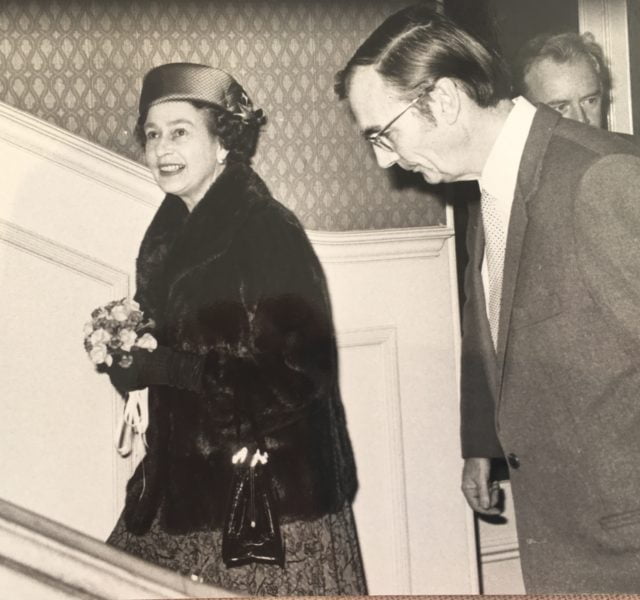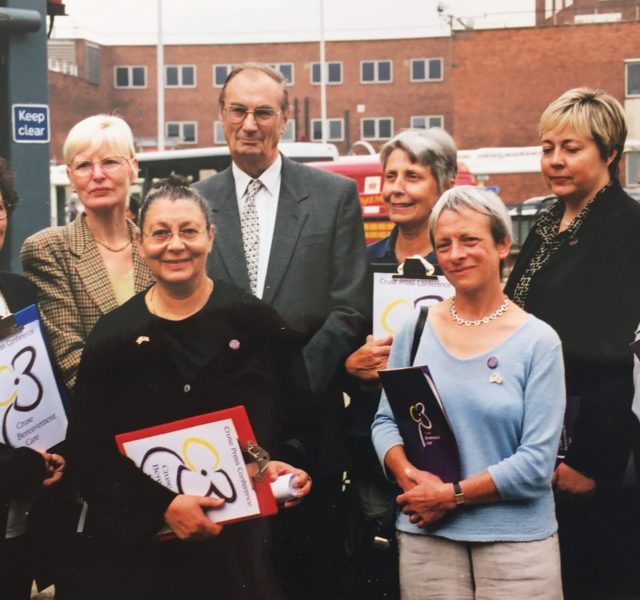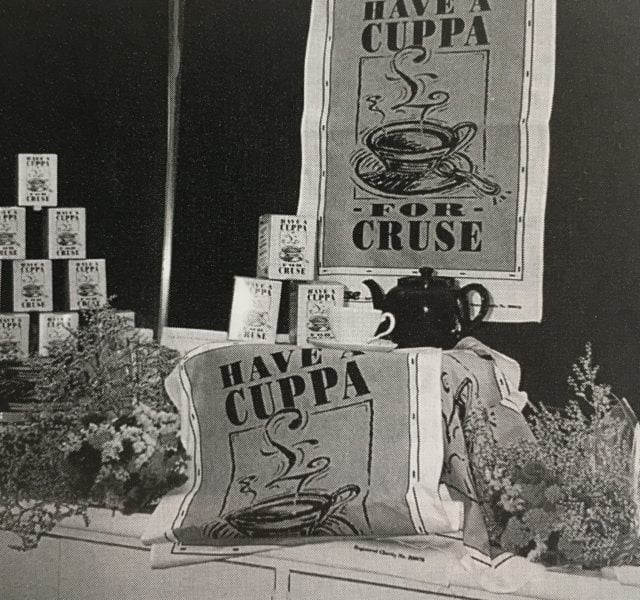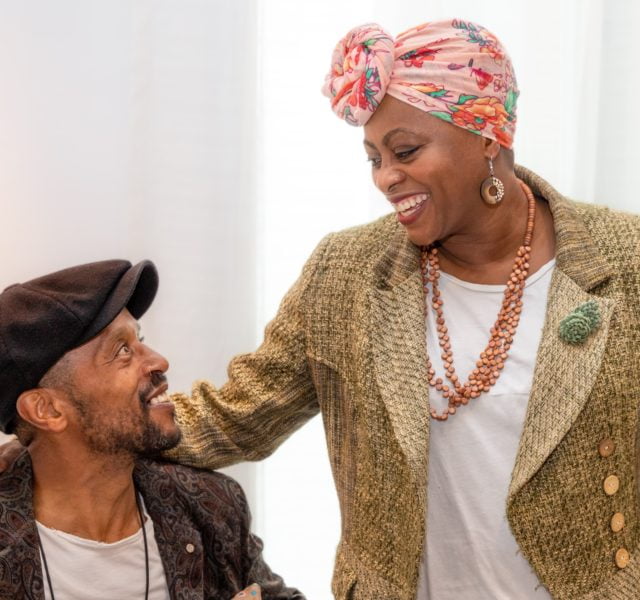Our history
Cruse Bereavement Support has been helping people who are struggling with grief and bereavement for over 60 years.
The “Cruse Clubs Counselling Service for Widows and their Families” was registered as a charity in October 1959. In the years since we have expanded to help widowers, children and eventually all bereaved people, grown a network which includes over 4000 volunteers, and responded to national disasters and tragedies. In 2021 we became Cruse Bereavement Support, and we continue to adapt to meet the needs of those who are grieving in a changing world.
Cruse was founded by Margaret Torrie. She became aware of how much widows were struggling during her work as a social worker and while working with the Citizen’s Advice Service. She saw that the loss of a husband was often a major emotional, social and economic crisis, for the woman and for any children, and she decided to act. Margaret Torrie’s husband, Dr Alfred Torrie, was a psychiatrist and Quaker and served as chairman of Cruse. The on-going effects of their pioneering work have been felt by millions of bereaved people across 60 years.
The word “Cruse” comes from a story in the Bible (1 Kings 17). During a famine a widow shared her last meal with a hungry stranger – the prophet Elijah. Because of her kindness, from then on her earthenware jar – or ‘cruse’ – of oil was always miraculously full.
Despite the origins of the story, Cruse is now a secular organisation and welcomes people of all faiths and none.
In the 60s widows faced considerable financial and practical challenges and there was very little information available to help them understand and cope with their grief. There were no mutual support groups, bereavement counsellors or advice books. Bereaved people were advised to keep busy, move on, and grieve privately in silence.
Cruse Clubs began to change this. For the first 17 years Cruse was run from Margaret Torrie’s house in Richmond upon Thames. In 1966 Dr Colin Murray Parkes, a psychiatrist specialising in bereavement, joined the Cruse council. Dr Parkes was involved in helping the community following the Aberfan disaster in 1966. Also helping in Aberfan was Derek Nuttall, who was Chair of the community association in Aberfan for seven years before coming to work for Cruse.
In the 1970s several influential publications began to raise awareness and academic interest in bereavement. Cruse continued to expand, and we ended the decade with 53 branches over England, Scotland and Wales. Alfred Torrie died in 1972 and Margaret Torrie retired in 1977 but their influence and the organisation they founded ensures their legacy continues.
In 1980 Cruse began to support widowed men as well as women. By the end of the decade our name had changed again, this time to ‘Cruse Bereavement Care’ and we had extended services to all bereaved people, whoever has died and whenever the death took place – a policy which continues to this day.
Sadly, a number of tragedies took place during the decade, and Cruse was called on to give support to many of those who were bereaved or traumatised. The Bradford fire disaster, Kings Cross fire, Zeebrugge, Lockerbie and Hillsborough each brought their own unique challenges.
During the 90s our understanding of the process of grief developed further following some influential academic studies. There was increasing recognition that many bereaved people need support, and counselling became more regulated.
In 1997 the unexpected death of Diana, Princess of Wales sparked a period of national mourning which challenged society’s attitude to public grief. By 1999 Cruse had a new development plan and had launched telephone and email support.
During this decade Cruse’s central office moved from Cruse House to new modern offices in Richmond. We launched our first websites for adults and young people and our journal Bereavement Care was published online for the first time. In 2009 we celebrated our Golden Jubilee, marking 50 years of supporting bereaved people.
There were tragedies too. Cruse sent a team to New York following the events of 9/11 and provided support to those who lost loved ones as a result of the London bombings.
In recent years Cruse has campaigned for bereavement benefits, bereavement leave, and against funeral poverty. We also played an important part in the raising standards of bereavement care, working with partners to publish the Bereavement Care Standards, and guidance on managing bereavement in the workplace.
Our work was recognised when we were chosen to benefit from the Royal Wedding Charitable Gift Fund when the Duke and Duchess of Cambridge married, and as one of the charities chosen as a Patron’s Hero during the celebrations of Her Majesty The Queen’s 90th birthday.
We celebrated our 60th anniversary in 2019 and held a reception to honour our volunteers hosted by The Queen at St James’s Palace.
2020 brought new challenges, with the months of the coronavirus pandemic some of the most challenging in our history. As soon as the pandemic hit we knew that Cruse would be needed more than ever before, with many additional deaths and all bereaved people grieving under traumatic and isolated conditions. Within an amazingly short time we were able to move all our support for bereaved people to phone or online, developed website resources to help those affected, and moved all our training to be delivered remotely. We contintue to adapt our services as the situation develops.
In 2021 we relaunched a new website and changed our name to Cruse Bereavement Support and updated our mission and values. We want to live in a world where everyone grieving is supported, respected and understood. After more than 60 years we’re still here to educate, equip and empower society to show grieving people the respect and kindness they deserve.




